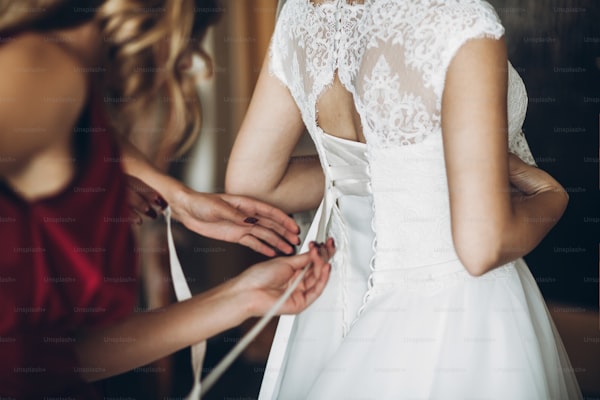Mastering the Art of Fitting Challenges for Wedding Dresses with Built-in Corsets
Mastering the Art of Fitting Challenges for Wedding Dresses with Built-in Corsets
Understanding the Unique Fit of Wedding dresses with Built-in Corsets
Wedding dresses are one of the most significant attire you will ever choose, symbolizing love and commitment. However, when it comes to a wedding dress with a built-in corset, fitting challenges can be quite common. The beauty of these dresses lies in their design, which not only adds elegance but also provides structured support. In this article, we will explore how to handle the fitting challenges associated with these stunning pieces.
What are Built-in Corsets?
A built-in corset refers to the interior structure sewn into the wedding dress that helps mold and shape the body, providing support and enhancing the silhouette. This design feature is favored by many brides for its ability to create a tiny waist and flattering frame. However, it can also present unique fitting challenges that require attention.
The Importance of Proper Fitting
Proper fitting is crucial for several reasons:
- Comfort: A well-fitted dress allows for ease of movement, essential for dancing at the reception.
- Confidence: Feeling comfortable and beautiful in your dress can significantly boost your confidence on your big day.
- Style: A fitted dress will ensure the intended design is displayed beautifully.
Common Fitting Challenges
When it comes to fitting Wedding dresses with built-in corsets, brides often encounter a few recurring challenges:
| Challenge | Description |
| Size Discrepancy | The dress may not correspond perfectly with standard size charts due to corsetry differences. |
| Body Shape Variability | Individual body shapes vary significantly, making it essential to accommodate personal curves. |
| Mobility Issues | The structured nature of a corset can limit movement if not fitted correctly. |
Steps to Handle Fitting Challenges
Here are some actionable steps to ensure your wedding dress fits perfectly:
1. Consult with a Professional Tailor
One of the most effective ways to deal with fitting challenges is to work closely with a professional tailor who specializes in Wedding dresses. Their expertise will help in making the necessary adjustments to ensure a perfect fit. Schedule several fittings to assess how the dress adapts to your body as you move.
2. Understand Your Measurements
Before trying on Wedding dresses, it’s essential to have accurate measurements. Measure your bust, waist, and hips, and communicate these with the bridal shop or tailor. Understand that the corset will alter how these measurements are perceived, and discuss these differences openly with your consultant.
3. Choose the Right Style
Some wedding dress designs suit different body types better than others. A-line dresses might work better for brides with wider hips, while mermaid styles may flatter those with an hourglass figure. Knowing your body type will help in selecting a dress that naturally accommodates your shape.
4. Pay Attention to Fabrics
The type of fabric used in the dress can also influence fitting challenges. Heavier fabrics may provide better structure, but they can also be less forgiving. Consider lighter materials if you prefer a dress that allows for more movement.
5. Incorporate Modifications if Necessary
Sometimes, additional modifications may be required beyond the standard adjustments. These can include adding a modesty panel, adjusting the boning, or even changing the dress's back closure to a laced version for better fit and flexibility. Marrying the right modifications with your original design can lead to a flawless fit.

Frequently Asked Questions
As you prepare for your wedding, several questions might arise regarding dresses with built-in corsets. Let’s address some common queries:
Can I wear a bra with a corset wedding dress?
Typically, you won’t need to wear a bra with a corset dress since the corset provides ample support. However, if you feel more comfortable with additional support, consider a strapless bra designed to fit seamlessly.
What should I do if the dress is too tight around my torso?
If the dress feels too tight, it's vital to communicate this with your tailor. They can assess whether any adjustments can be made. Sometimes, altering the lacing or modifying the corset can significantly improve comfort.
How do I know when I’ve found the right fit?
The right fit is achieved when you can comfortably move, sit, and breathe without feeling restricted. Additionally, ensure the dress hugs your figure without any uncomfortable pinching or pulling.
Conclusion
Fitting challenges for Wedding dresses with built-in corsets can seem daunting but with the right knowledge, support, and modifications, they can be easily managed. Always prioritize comfort and confidence, as these two elements will ensure you shine on your big day. Don't hesitate to consult experts, and remember, the goal is to create a harmonious balance between beauty and wearability, culminating in a dress that highlights your unique style. Enjoy the journey of finding the perfect dress, and embrace the fitting process as a vital part of your wedding preparation!
